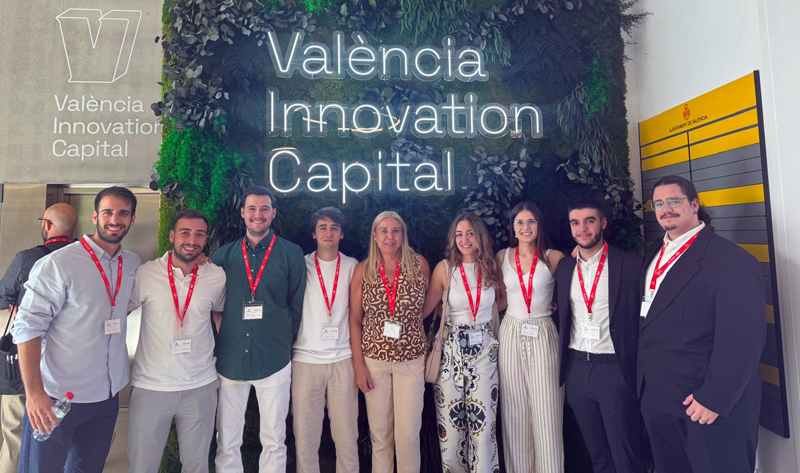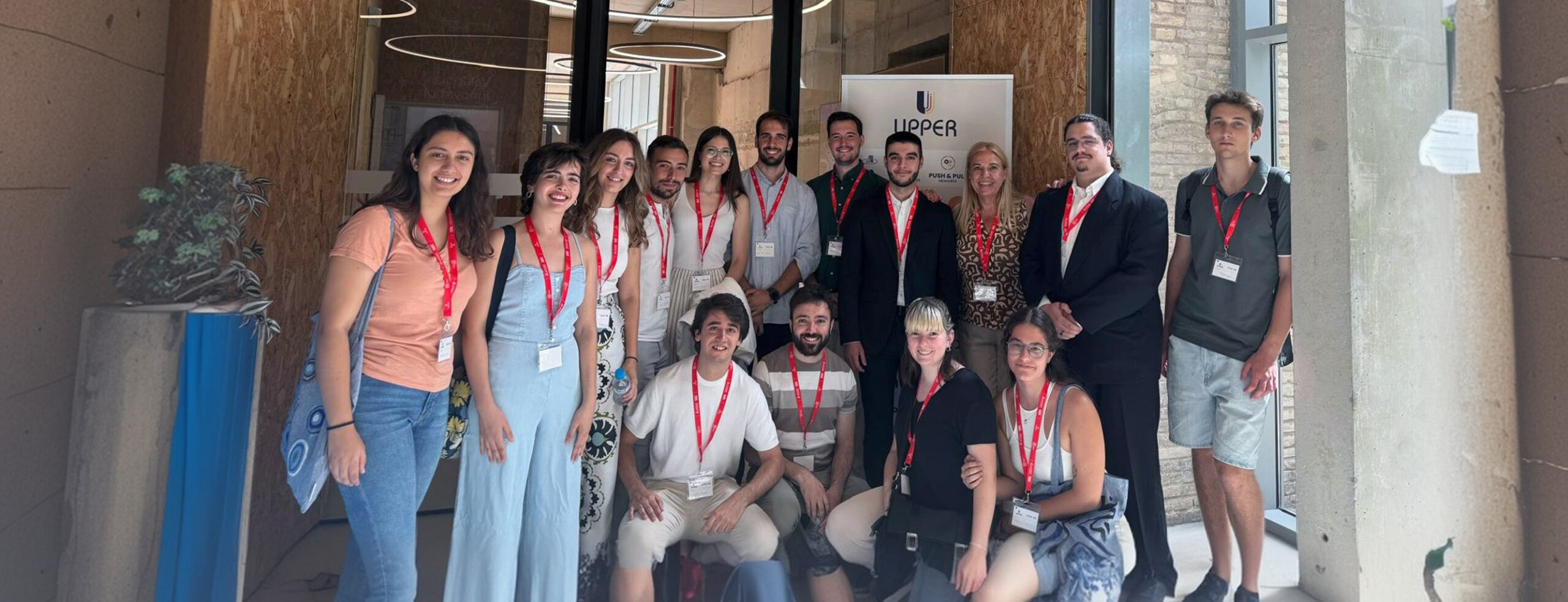València has emerged as the epicentre of sustainable transport thanks to the third General Assembly of the European project «UPPER», which took place on 26 and 27 June, and the «UPPER Hackathon Valencia» for innovative projects, held on 10 and 11 June.
The General Assembly was attended by more than 40 partners and 10 European cities and regions, including Valencia, Rome, Versailles Grand Parc – Île de France, Oslo, Mannheim, Lisbon, Leuven, Budapest, Thessaloniki and the Hanover region.
This meeting, sponsored by the local consortium formed by EMT, Valencia City Council and the ITACA-UPV Institute, was designed as a forum for work and debate on this ambitious project, which began in 2023 and is scheduled to end in 2026.
«More than 80 experts in sustainable mobility, transport and technology debated on the progress in each of the participating cities and discussed how to better prepare our cities to make them more resilient to the pernicious consequences of climate change. Public transport is essential to face the challenges of climate change and improve the quality of urban life, as it facilitates the daily movement of large numbers of people», highlights Eloína Coll, professor at the UPV and lead researcher of the ITACA-UPV project (ICTvsCC group on Information Technologies against Climate Change).

The UPPER project will adopt an integrated and holistic approach to facilitate cooperation between municipal authorities and transport management entities, providing a physical and digital environment for testing measures and updating existing Sustainable Urban Mobility Plans (SUMPs).
«The public transport offer will be optimised with the needs and behavioural patterns of users, seeking to involve them in mobility decision-making. In addition, the use of public transport will be increased with the objective of achieving a system that will be attractive, efficient, reliable, safe, inclusive and affordable, in accordance with the concept of Mobility as a Right,» explains the ITACA-UPV researcher.
UPPER Hackathon Valencia
On 10-11 June, the «UPPER Hackathon Valencia» took place, where four teams developed innovative solutions to improve public transport and were evaluated by a panel of judges composed of two members from EMT and two from Valencia City Council.
«Transversal teams worked hard to bridge the gap between Mobility as a Service (MaaS) and Mobility as a Right (MaaR), ensuring an inclusive user experience at bus stops,» says the UPV professor.
This event took place at Las Naves and was tutored by Eloína Coll and Edgar Lorenzo, both from the ITACA Institute. In this manner, the teams addressed challenges related to inclusivity, data-driven mobility, collective solutions that address people’s needs and the use of advanced technology.
Finally, two teams from the Chair of Governance of the City of Valencia won the first and second prizes.
«The projects ‘NUCLANSA’ and ‘Sube, que te llevo’ highlighted for their creativity, innovation and commitment to sustainable mobility,» says researcher Edgar Lorenzo.

Research Details
UPPER is composed of 41 partners and coordinated by UITP (International Association of Public Transport). This CIVITAS project is funded by the EU’s Horizon 2020 and Horizon Europe research and innovation programmes. Its main objectives are to increase the use of public transport by more than 30% and to increase user satisfaction by more than 25%.
Operationally, UPPER will implement more than 80 measures, focusing on five innovation models to positively influence users’ decisions: mindset and culture, urban mobility planning, mobility services ecosystem, road network management and democratic governance.
«Mobility is recognised as one of the fundamental pillars for building a more egalitarian society, cohesive neighbourhoods and ensuring access to work, education and care for those who need it. Therefore, it has been established that mobility must be guaranteed as a right for all people, ensuring the necessary resources for quality, competitive and safe transport,» says Edgar Lorenzo, ITACA researcher and participant in the project.



